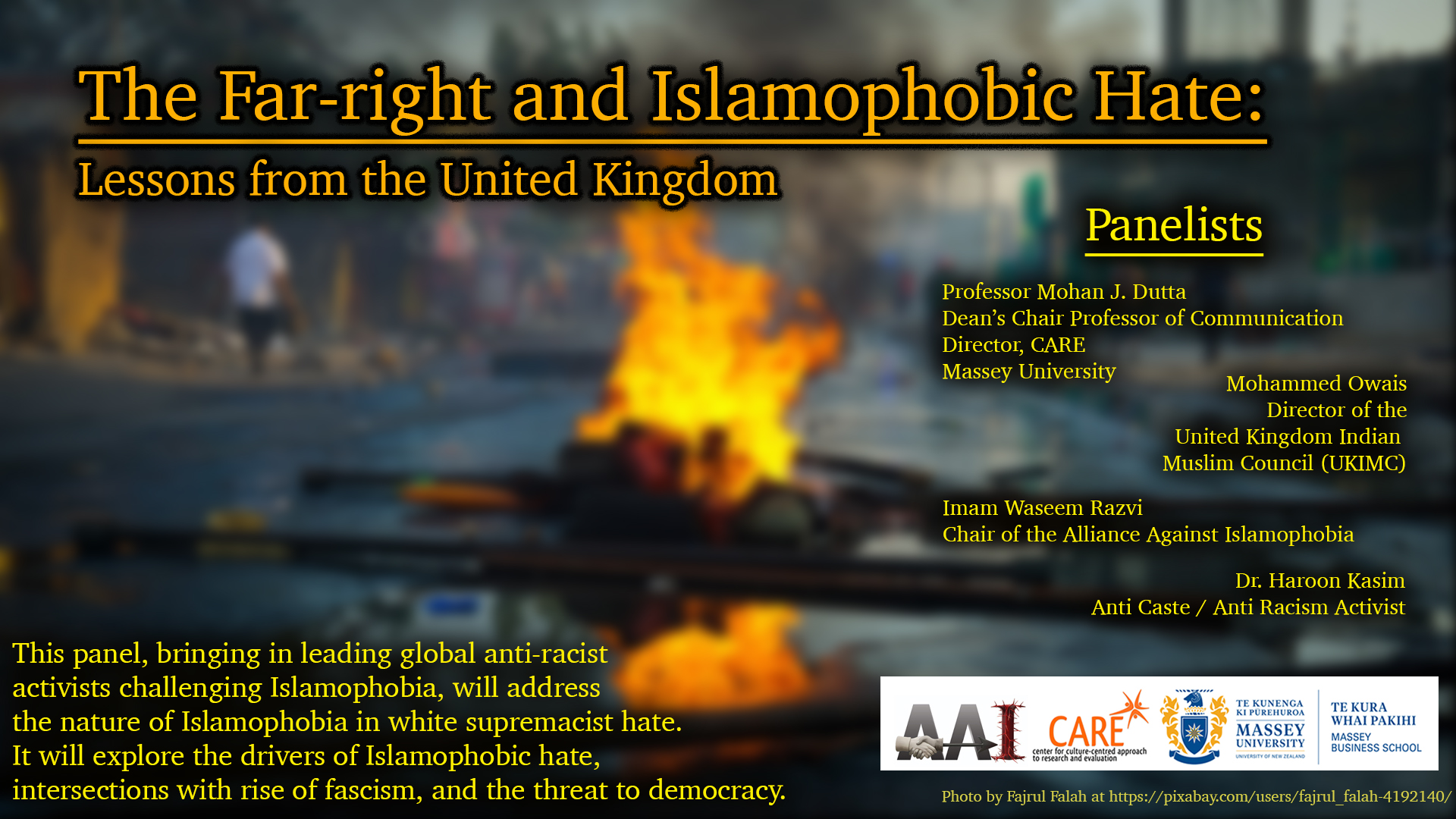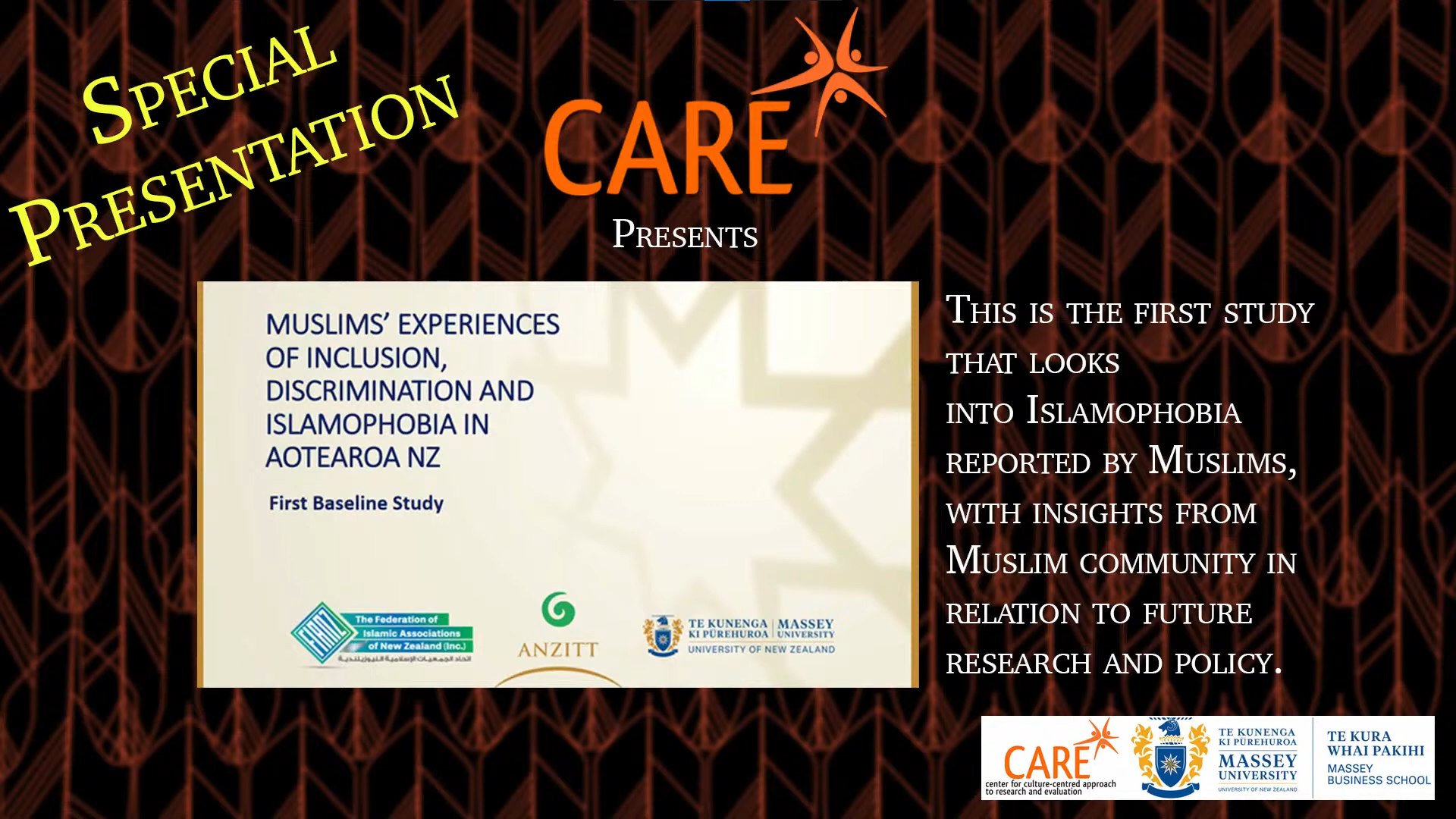Professor Dutta has been recognised for his pioneering work in de-westernising communication research and promoting social justice through community-led initiatives.
Professor Mohan Dutta, Dean’s Chair Professor of Communication and Director of the Center for Culture-Centered Approach to Research and Evaluation (CARE) at Te Kunenga ki Pūrehuroa Massey University has been named as the winner of the 2024 Global Communication Award from the National Communication Association (NCA).
The Global Communication Award recognises distinguished communication scholarship that de-westernises ways of knowing and doing, focuses on regions, communities, or spaces outside of the United States (US) and Europe, integrates and cites international and global scholars, theories, approaches and/or methodologies in their scholarship and amplifies the global ecologies of knowledges.
Through his scholarship spanning three decades, Professor Dutta has created new openings for communication research and theory of/from the Global South, decentring the North Atlantic dominance of communication studies. He developed the culture-centred approach as a communication theory for conceptualising the ways in which communities of the Global South have been historically marginalised by the intertwined processes of colonialism, racial capitalism and imperialism.
His research programme, created in partnership with communities struggling against these marginalising forces, seeks to build voice infrastructures for community participation and decision-making in struggles for just futures. The academic-community partnerships he has created and sustained across the globe foster spaces for mobilising for social change.
From partnering with Adivasi (Indigenous) communities in Eastern India to build Indigenous-led community education programmes and cultural resources, to partnering with youth in the US Midwest to co-design an anti-tobacco advertising campaign and partnering with communities in Highbury and Feilding in Aotearoa New Zealand in co-creating community-owned food systems, violence prevention programmes and communication advocacy campaigns, the impulse of Professor Dutta’s work is rooted in securing justice.
The award citation states, “Dr Dutta evinces a deep commitment to social justice as a transnational project and has assiduously worked to forge ethical ties across different geopolitical terrains. Thus, Dr Dutta’s work continues to inspire scholars from marginalised communities, exemplifying the qualities of this award.”

Spanning 17 countries and four continents, the scope of Professor Dutta’s research and leadership, evidenced in his directorship of CARE, fosters the communication capacities of communities experiencing systemic disenfranchisement. Across local, national, regional and global spaces, the work of CARE builds sustainable linkages and connections among struggles for justice. The impact of Professor Dutta’s scholarship is evident in the power of community-led advocacy in influencing policies addressing social injustices. The community-led research collaborations he has built have shaped a wide array of community development projects, including community-owned food systems, hospitals, Indigenous cultural resources, educational infrastructures, systems for clean drinking water and community- and worker-owned advocacy and activist campaigns.
Professor Dutta says the award is a recognition of the global impact of the world-class research being carried out at CARE.
“It’s a collective of researchers, community organisers, advocates, activists and civil society organisations that actually carry out the work in community. The steadfast support of Massey University fuels our research programme.”
Since its relocation to New Zealand in 2018, CARE has carried out over 50 community-led social change projects addressing the United Nations’ Sustainable Development Goals (SDGs) around no poverty, good health and wellbeing, reduced inequalities, climate action, zero hunger, clean water and sanitation, sustainable cities and communities, peace, justice and strong institutions and partnerships for the goals.
The most recent scholarship of CARE, on challenging Islamophobia, builds partnerships with communities and civil society organisations in mapping online and offline Islamophobia, developing community-led culture-centred digital literacy programmes challenging Islamophobia and strengthening community capacities in securing peace. White papers and policy briefs derived from the research have played critical roles in shaping public policies around social cohesion and anti-racism.
The activist-in-residence programme, white papers and community and public dialogues offer templates for community-engaged scholarship with global reach. In addition, CARE regularly hosts international researchers, community organisers, civil society organisations and students from across the globe who are interested in learning about the culture-centred approach to social change. So far, it has trained over 100 researchers, community organisers and peer leaders on the principles and methods of the culture-centred approach. A documentary featuring the work of CARE is available here.
The international reach of Professor Dutta’s mentorship has been recognised with the Aubrey Fisher Mentorship Award and the NCA Health Communication Division’s award for outstanding contributions to promoting equity and inclusion. He also received the NCA Presidential citation for his contributions to de-centring the whiteness of the discipline through his public scholarship and activism.
Professor Dutta’s scholarship has also been recognised with the prestigious Charles H. Woolbert Research Award, the NCA’s Golden Anniversary Monograph Award, Applied Communication Award, the Bridge Award for Excellence in Connecting Crisis and Risk Communication Research and the International Communication Association’s Applied Public Policy Communication Researcher Award.
He is a Distinguished Scholar of the NCA and Fellow of the ICA.
About the National Communication Association (NCA)
The NCA advances communication as the discipline that studies all forms, modes, media and consequences of communication through humanistic, social scientific and aesthetic inquiry. The NCA serves the scholars, teachers and practitioners who are its members by enabling and supporting their professional interests in research and teaching.
Dedicated to fostering and promoting free and ethical communication, the NCA promotes the widespread appreciation of the importance of communication in public and private life, the application of competent communication to improve the quality of human life and relationships and the use of knowledge about communication to solve human problems. The NCA supports inclusiveness and diversity among their faculties, within their membership, in the workplace and in the classroom, and supports and promotes policies that fairly encourage this diversity and inclusion.
NCA’s annual awards will be bestowed on several distinguished members at the NCA 110th Annual Convention in New Orleans, Louisiana. Below is the list of those who will be honored at the awards presentation.
#ProfessorMohanDutta #GlobalCommunicationAward #NCA #CAREMassey #MasseyUniversity #CARECCA #CommunicationScholarship #DeWesternization #GlobalSouth #SocialJustice #CommunityEngagement #CARE #MasseyUniversity #CulturalCenteredApproach #VoiceInfrastructures #CommunityPartnerships #SocialChange #UNSDGs #Islamophobia #PublicScholarship #EquityAndInclusion #AcademicFreedom #CommunicationResearch #GlobalImpact
Source: Massey News- Professor Mohan Dutta receives 2024 Global Communication Award – Massey University & NCA




